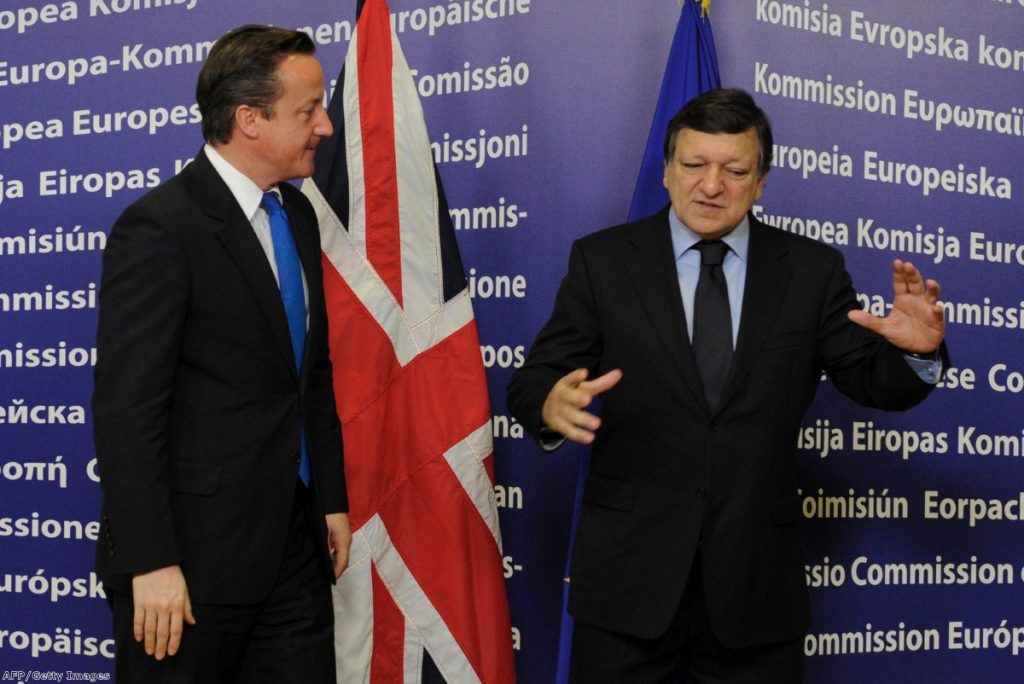The ‘green card’ which lets Westminster take the fight to Brussels
In case you hadn't noticed, the European Union has a problem. No-one likes it. So to make everything better a committee of peers has come up with an odd sort of solution which could end up irritating more people than it placates.
Rather than 'recalibrating' the relationship, as David Cameron wants, peers are recommending a strengthening of national parliaments' ability to irritate the EU's commissioners – the men and women who actually run Europe.
Right now the chief means of making these Brussels bureaucrats' lives miserable is to deploy the so-called 'yellow card' – a measure which, when triggered, forces the European Commission to think again about this or that policy.
This has only happened twice since 2009. Members of the Lords, reasonably enough, think we can do better than this. So peers are proposing strengthening the 'yellow card' procedure. Making the commissioners engage with the reasoned opinions would help. Allowing national parliaments to initiate proposals would be even better.


It's this latter point which is the most striking idea to emerge from today's report. Getting national parliaments actively involved through a 'green card' process, where they are permitted to come up with new EU legislation or amendments to existing law, would fundamentally change the dynamic of how Europe operates.
It would achieve two things. Brussels would instantly become more relevant to ordinary voters' lives. And it would become far harder for the commissioners to ever get anything done.
Just imagine if the hardline Tory eurosceptics that speak about nothing else in parliament were given free rein to pester Brussels. The British government, which controls the Commons, would face more regular pressure to agree to support the strengthened europhobe voice. Cameron's renegotiation strategy would be undermined. Ministers in London would not be keen on this.
If any changes did get through – and doing so would rely on cooperation with other national parliaments for any measures to actually stand a chance of making a difference – the onus would then be on the commissioners to either accept the change or reject it. They would be antagonised. Their jobs would become harder. Depending on your view of Europe in general, this is either an excellent or a terrible thing.
What peers are hoping for is that the process of going through parliaments would increase the stakes. Commissioners could still find ways to ignore what was being said, but would pay a higher political price for doing so.
This is laudable, even if the plausibility of cooperation between parliaments – and, ultimately, governments – seems difficult to achieve in practice.
"Parliaments need to develop the habit of collaboration between themselves," says Lord Boswell, chair of the Lords' EU committee.
"If they are prepared to talk to each other and the European institutions, and they're prepared through their national scrutiny mechanism to put pressures on their own government, they could achieve more than they can individually."
He's equating two things: the activism of pro-democratic parliaments, desperate to increase their voice, and the natural reluctance of governments to get more people involved in the business of running the EU. Why get domestic politicians involved when everything can be settled up in meetings once a month between the continent's leaders?
That's the question Lord Boswell and co have to answer if they want this idea to fly. Right now, however much the UK government may be kicking up a stink in Brussels, the British will be just as keen on making sure everyone ignores this idea.

